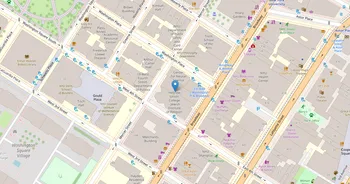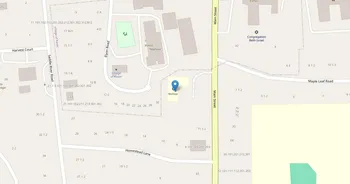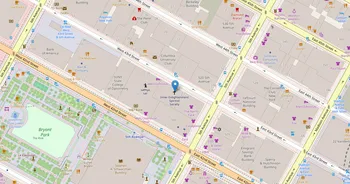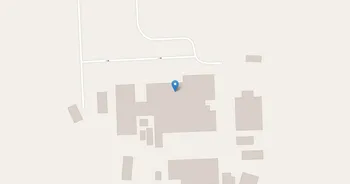Yeshivath Zichron Moshe : Overview, Courses, Scholarships & Rankings
About Yeshivath Zichron Moshe
Set in the Catskills, Yeshivath Zichron Moshe is known for rigorous Torah study, close rebbe-student mentorship, and thoughtful personal growth. The culture feels earnest and warm, with a steady rhythm of prayer and learning, chavrusa study at the center, and a shared expectation of respect and responsibility.
Facilities include bright study halls, a well-used Judaic library, dorm-style housing, and straightforward student support for advising and guidance. Student life leans simple and meaningful: after-hours learning, low-key gatherings, volunteer projects, and fresh-air Catskills recreation. The yeshiva has a reputation for practical career preparation through mentoring and community connections, supporting paths in education, communal service, and leadership. The local town is calm and welcoming, and long-standing traditions give the place a grounded feel.
Key Institutional Details
Contact & Profile
Academic & Institutional
Academic Programs & Fields of Study
Yeshivath Zichron Moshe offers 1 degree programs across 1 major academic fields, graduating approximately 56 students annually. The most popular fields by graduate volume are Philosophy (1 programs, 56 graduates). Explore program details, award levels, and graduate demographics below.
Philosophy (1 programs, 56 graduates)
Philosophical Studies, Ethics and Religious Thought
| Program Name | Graduates | Gender Distribution | Award Levels | CIP Code |
|---|---|---|---|---|
| Talmudic Studies | 56 |
|
Associate's
Bachelor's
|
38.0207 |
Admission Requirements & Test Scores
Comprehensive overview of admission criteria, standardized test score ranges, and application requirements for prospective students at Yeshivath Zichron Moshe.
Application Requirements
Data based on IPEDS for 2022-2023 academic year. Test score ranges represent the middle 50% of admitted students (25th-75th percentile). Requirements may vary by program.
Tuition, Fees & Estimated Costs
Overview of tuition rates, housing, and other annual education expenses for undergraduate and graduate students
Financial Aid & Student Support
Summary of scholarships, grants, student loans, and financial aid statistics for undergraduate students
Student Success Metrics
Graduation rates and post-graduation earnings to help assess student outcomes and long-term value of education.
Loan Burden & Repayment Outcomes
Breakdown of loan repayment rates and student debt levels by income and dependency status.
Frequently Asked Questions
Find answers to the most common questions about Yeshivath Zichron Moshe
How much does it cost to attend Yeshivath Zichron Moshe?
The annual tuition at Yeshivath Zichron Moshe is $10,880 for in-state students. When including room and board, books, and other expenses, the total estimated cost is approximately $20,440 for in-state students. Additional costs include room and board $3,260 (on) / $16,700 (off) and books and supplies $300.
Data based on IPEDS program completions for 2022-2023 academic year. Tuition and cost estimates are approximate and may not include all fees, personal expenses, or transportation costs.
What academic programs and degree levels does Yeshivath Zichron Moshe offer?
Yeshivath Zichron Moshe offers 1 academic programs across 1 major fields of study, with available degree levels: Associate's, Bachelor's.
Most popular program areas include:
- Philosophical Studies, Ethics and Religious Thought (1 programs)
Data based on IPEDS program completions for 2023-2024 academic year. Numbers reflect programs where students graduated, not all offered programs.
What is the acceptance rate for Yeshivath Zichron Moshe?
Yeshivath Zichron Moshe has an 52.2% acceptance rate and a 100% yield rate, making it selective.
Admission statistics breakdown:
- Total applicants: 23
- Students admitted: 12
- Students enrolled: 12
Data based on IPEDS for 2022-2023 academic year. Admission statistics may vary by program and application cycle.
What financial aid and scholarships are available at Yeshivath Zichron Moshe?
Yeshivath Zichron Moshe provides financial aid to 6% of first-time, full-time students, with average grants of $9,583 and average loans of $0.
Average financial aid amounts by type:
- Pell grants: $5,932
- Institutional grants: $7,283
The university supports 8 students with grants and 0 students with loans annually.
Data based on IPEDS for 2022-2023 academic year. Financial aid amounts and percentages may vary by program, enrollment status, and individual circumstances.
Related Universities




Found something useful? Help others discover it too! Share with friends, on social media, or save for later - every share helps someone find the information they need.